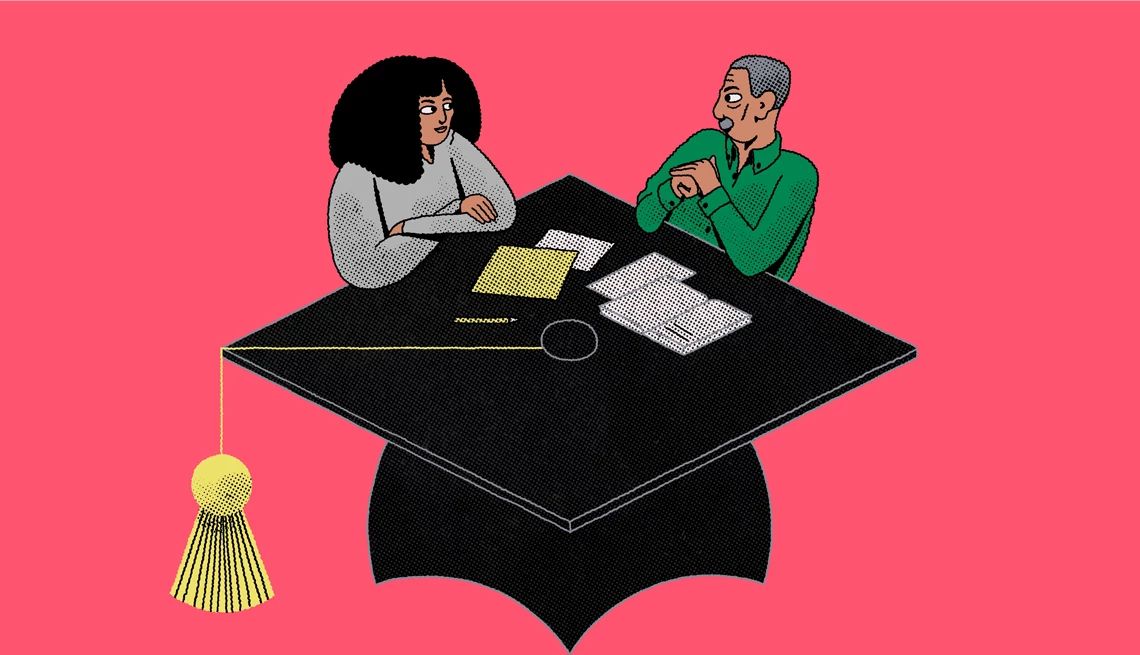AARP Hearing Center


Remember applying to college? A decent GPA and a few school activities and you were pretty much a shoo-in to at least a couple of good schools. That’s all changed — really changed. The process is competitive, stressful and takes years of preparation (planning what classes to take, SAT tutoring, a long list of clubs and volunteer work).
Besides footing the bill or sporting a college T-shirt, there are several tangible ways grandparents can help ease the burden on their child and grandchild.
The study buddy
While you might not be able to remember all of your school subjects, grandparents often have knowledge in one or two areas that could help support a grandkid academically.
Or, just as important, help spark their curiosity on a subject so they are motivated to learn about it themselves.
“If grandpa is a scientist, and you’re doing really poorly in science, maybe he can help inspire you to look at it in a different way,” says Stacey Lichter, a college essay consultant at Step by Step College Essay Prep. Any encouragement, whether it’s sharing career stories or visiting a museum together, can help students improve their grades in a way that’s more meaningful than simply hiring a tutor, she says.
“I once spoke with a grandmother who was a retired biology professor,” says Jothsna Kethar, CEO and college counselor, educational consultant, and study skills and ADHD coach at Gifted Gabber. “She played a pivotal role in guiding her grandson toward selecting a research program that aligned with his interests and academic goals.”
The oasis provider
For families with multiple siblings or small quarters, grandparents can provide a quiet space for studying.
“The grandparent can make space for that and say, ‘Every Tuesday come over. We’re ordering a pizza, and we’re going to go through a section of the SAT or ACT,’ ” says Michelle McAnaney, founder and president of The College Spy. This can be a special time the grandchildren look forward to, says McAnaney, and it often works well because the grandparents are usually one step removed from day-to-day family life.
The reporter
It can be a full-time job trying to keep up with all the ever-changing college admissions requirements, like new testing options, says Sara Harberson, a college counselor, founder of Application Nation and author of Soundbite: The Admissions Secret That Gets You Into College and Beyond.
Grandparents can help keep track of those developments by following national media outlets as well as local publications near colleges on your grandchild’s list, college alumni magazines, college blogs, college social media accounts and experts in the field.







































































More From AARP
A Guide to Grandparenting
What role do grandparents have in their grandchildren’s lives, and how can they relate to and care for grandchildren?
Favorite Museums to Visit With the Grandkids in Every State
Make the most of trips to these attractions
Think Twice Before Posting Back-to-School Photos of Your Grandkids
Those adorable pictures contribute to a permanent online record of your grandchildren that’s out of their control
Recommended for You